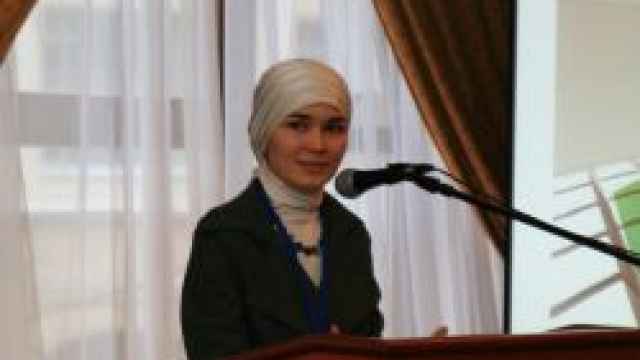
Madina Kalimullina
Head of the Department for Economic Programs
Russia Muftis Council
Created on May 18, 2009, following the article of the resolution of the international conference “Islamic Banking: Specifics and Prospects” held in March 2009, the working group on alternative (Islamic) financial institutions and products had the objective of working out suggestions for creating conditions for financial organizations to operate on the territory of the Russian Federation according to Islamic finance principles.
Among the tasks of the working group are working out suggestions for introducing amendments to the Russian legislation for reaching an equal level of economic and tax conditions between Islamic and traditional financial institutions, working out standards for products and services of alternative (Islamic) financial organizations operating on the territory of the Russian Federation, preparing educational programs for HR training in the above spheres, creative information and enlightenment programs in this sphere, and participating in scientific research, etc.
Within five months four open meetings of the working group were held, each devoted to a separate Islamic financial product from among the most popular ones: musharaka, mudaraba, murabaha, takaful and sukuk.
These meetings were attended by working group scientists, bankers, experts in Russian and international law and taxation, as well as experts from abroad.
On Dec. 10, 2009 at the International conference “Islamic Finance: Prospects for Development in Russia” organized jointly by the Russia Muftis Council and The Moscow Times with the support of the Russian-Arab Business Council, the working group presented the first results of its studies.
The more that Islamic finance is discussed among different circles in Russia the more often the question of the level of demand for Islamic financial products on the part of the Russian population is being raised. According to various calculations, the native Muslim population of Russia is 20 million to 25 million, that is, about 16 percent of the country’s total population. Does this mean that the potential demand for Islamic products in Russia is represented by this figure? Some people maintain that it is represented only by practicing Muslims, the percentage of which is known to be much lower, but which is still constantly growing. One should also not forget that since Islamic finance is part of ethical economics, it is aimed at all members of society, independent of religious beliefs.
A sociological study that was designed by the economic programs office of the Russia Muftis Council with the cooperation of independent experts was conducted among the population of Russia in all seven federal districts.
The objective of the research was to find out the level of demand for Islamic financial products in Russia. The study also had the task of finding out the level of knowledge about Islamic financial principles and factors influencing opinions and decision making about becoming a client of an Islamic bank, if they were to appear in Russia. The majority of the respondents are Muslims and form 95 percent of the whole 2,000 who took part in the study.
The results of the research showed that 68 percent do not keep their money in banks, and 58 percent had never taken a loan and have no plans to do so. This can be supported by the fact that 88 percent of the respondents do believe that there is an interlink between religious norms and economics (while among non-Muslims, only about 56 percent believe so).
At the same time, only 16 percent of the respondents know about Islamic economic principles. And even less (5 percent) have a good understanding of the most widespread products among Islamic banks, such as musharaka, mudaraba and sukuk. The key explanation to these figures is the fact that the level of religious education among Muslims in Russia remains low, although that percentage is growing on a yearly basis.
The research showed that 7 percent have higher religious education, twice the number that have secondary education, and 56 percent do not have religious education at all. Given the fact that only 20 years have passed since religious freedoms were given back to the population of Russia, these figures are rather promising.
The key question about respondents’ readiness to become clients of Islamic banks, should they be opened in Russia, showed that 56 percent are eager to become clients of the new institutions and 26 percent are likely to. Only 2 percent refuse to have cooperation with Islamic banks in future. The reasons for refusal differ, but the main one is lack of information on what Islamic banks are.
Indeed, lack of religious knowledge and lack of information on Islamic finance in Russia are the main factors preventing the development of Islamic financial institutions and products in the country. It can be concluded that, given the results of the research, Islamic financial products have good prospects for development in Russia and the pace of development largely depends on the dissemination of information and awareness about them.

